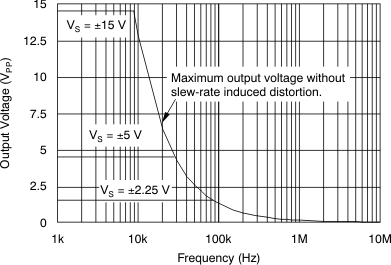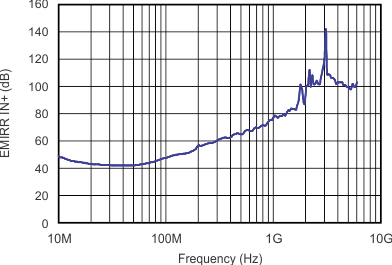SBOS861A June 2017 – June 2018 OPA180-Q1 , OPA2180-Q1
PRODUCTION DATA.
- 1 Features
- 2 Applications
- 3 Description
- 4 Revision History
- 5 Device Comparison Table
- 6 Pin Configuration and Functions
- 7 Specifications
- 8 Detailed Description
- 9 Application and Implementation
- 10Power Supply Recommendations
- 11Layout
- 12Device and Documentation Support
- 13Mechanical, Packaging, and Orderable Information
Package Options
Mechanical Data (Package|Pins)
- DGK|8
Thermal pad, mechanical data (Package|Pins)
- DGK|8
Orderable Information
7.8 Typical Characteristics
VS = ±18 V, VCM = VS / 2, RLOAD = 10 kΩ connected to VS / 2, and CL = 100 pF, unless otherwise noted.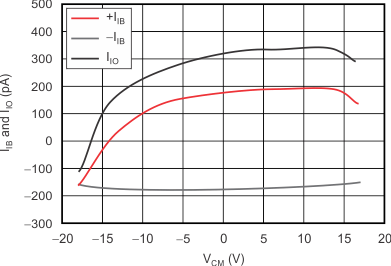
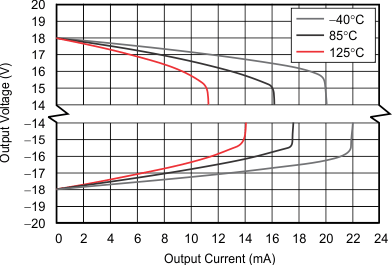
(Maximum Supply)
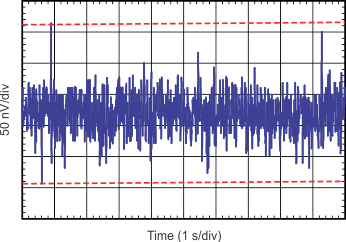
| Peak-to-Peak Noise = 250 nV | ||
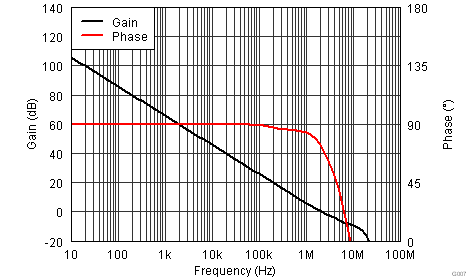
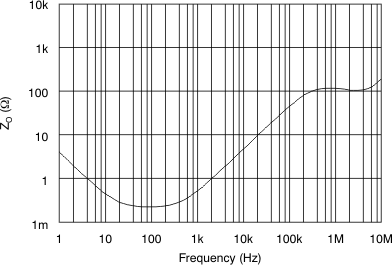
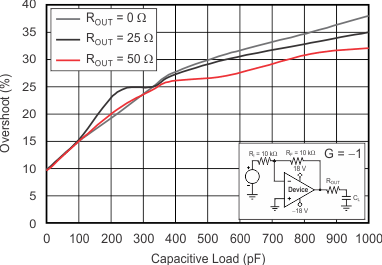
| RL = 10 kΩ |
(100-mV Output Step)
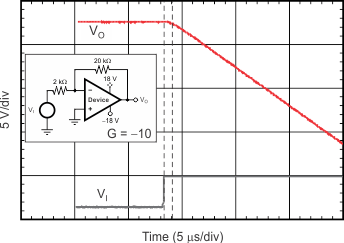
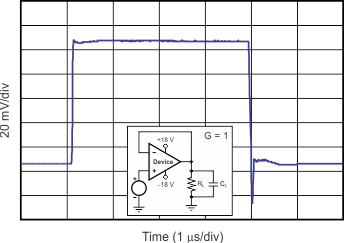
| RL = 10 kΩ | CL = 10 pF |
(100 mV)
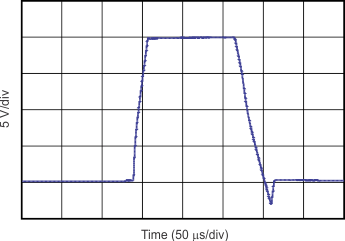
| G = 1 | RL = 10 kΩ | CL = 10 pF |
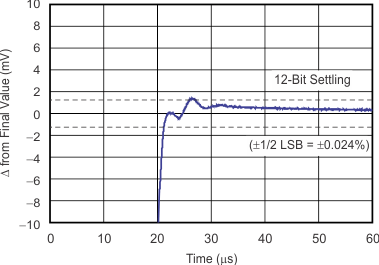
| G = –1 |
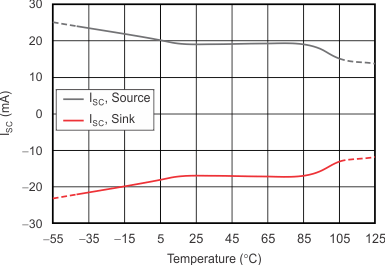
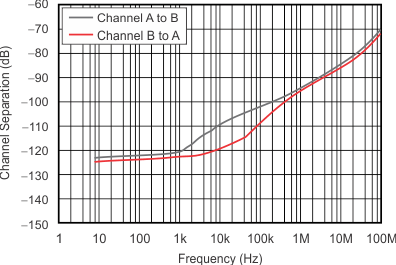
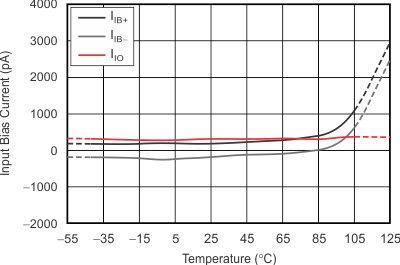
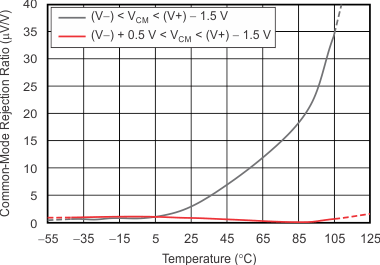
| VSUPPLY = ±2 V |
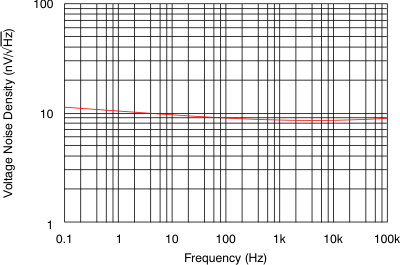
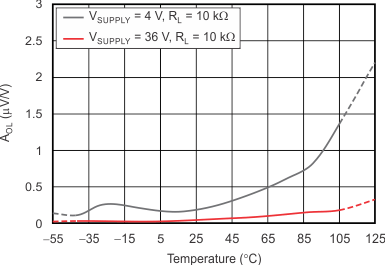
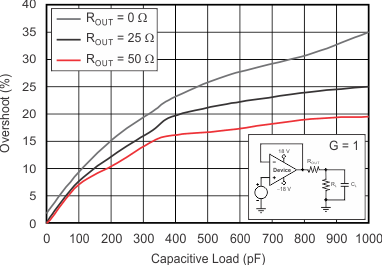
| RL = 10 kΩ |
(100-mV Output Step)
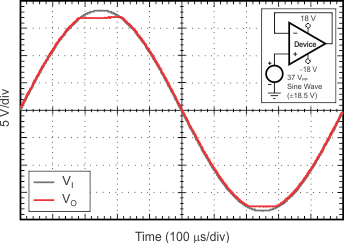
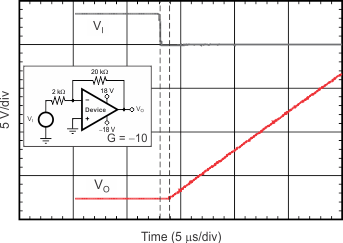
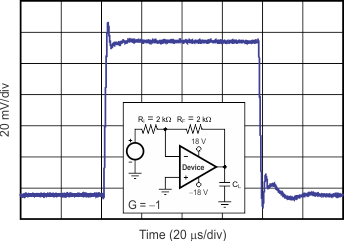
| RL = 10 kΩ | CL = 10 pF |
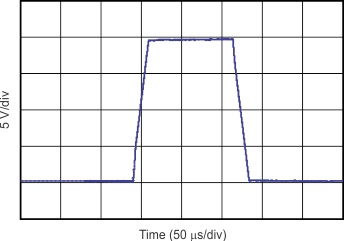
| G = –1 | RL = 10 kΩ | CL = 10 pF |
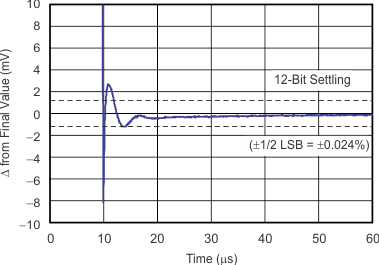
| G = –1 |
